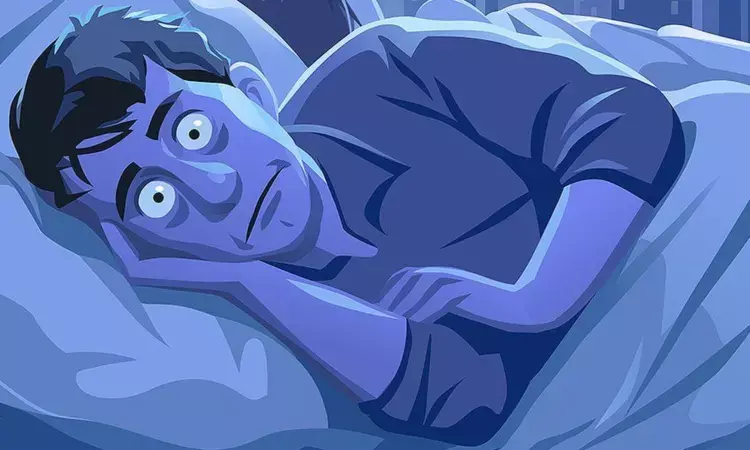- Home
- Medical news & Guidelines
- Anesthesiology
- Cardiology and CTVS
- Critical Care
- Dentistry
- Dermatology
- Diabetes and Endocrinology
- ENT
- Gastroenterology
- Medicine
- Nephrology
- Neurology
- Obstretics-Gynaecology
- Oncology
- Ophthalmology
- Orthopaedics
- Pediatrics-Neonatology
- Psychiatry
- Pulmonology
- Radiology
- Surgery
- Urology
- Laboratory Medicine
- Diet
- Nursing
- Paramedical
- Physiotherapy
- Health news
- Fact Check
- Bone Health Fact Check
- Brain Health Fact Check
- Cancer Related Fact Check
- Child Care Fact Check
- Dental and oral health fact check
- Diabetes and metabolic health fact check
- Diet and Nutrition Fact Check
- Eye and ENT Care Fact Check
- Fitness fact check
- Gut health fact check
- Heart health fact check
- Kidney health fact check
- Medical education fact check
- Men's health fact check
- Respiratory fact check
- Skin and hair care fact check
- Vaccine and Immunization fact check
- Women's health fact check
- AYUSH
- State News
- Andaman and Nicobar Islands
- Andhra Pradesh
- Arunachal Pradesh
- Assam
- Bihar
- Chandigarh
- Chattisgarh
- Dadra and Nagar Haveli
- Daman and Diu
- Delhi
- Goa
- Gujarat
- Haryana
- Himachal Pradesh
- Jammu & Kashmir
- Jharkhand
- Karnataka
- Kerala
- Ladakh
- Lakshadweep
- Madhya Pradesh
- Maharashtra
- Manipur
- Meghalaya
- Mizoram
- Nagaland
- Odisha
- Puducherry
- Punjab
- Rajasthan
- Sikkim
- Tamil Nadu
- Telangana
- Tripura
- Uttar Pradesh
- Uttrakhand
- West Bengal
- Medical Education
- Industry
Cognitive behavioral therapy helps arrest insomnia in at-risk children: Study

Children with a family history of insomnia and subthreshold insomnia symptoms can prevent themselves from developing insomnia by receiving cognitive behavioral therapy, according to a recent study published in the Pediatrics journal.
A study was conducted by Chan N et. al to avoid the future development of insomnia in adolescents with a family history of insomnia.
The researchers selected a total of 242 at-risk adolescents and randomly divided them into an intervention group (n= 121) and a control group (n= 121). Further, they conducted a randomized controlled trial comparing 4 weekly insomnia prevention programs with a nonactive control group. All the participants were evaluated at baseline, postintervention, and 6 as well as 12 months after treatment. The participants were blinded to the randomization. Analyses were conducted based on the intention-to-treat principles.
The findings of the study are as follows:
· Both acute and chronic insomnia incidence rate was lower in the intervention group as compared to the control group over the 12- month follow-up (5.8% vs 20.7%; P = .002; number needed to treat = 6.7; hazard ratio = 0.29; 95% confidence interval: 0.12–0.66; P = .003)
· Insomnia symptoms (P = .03) and the vulnerability to stress-related insomnia were less in the intervention group) at postintervention and throughout the 12-month follow-up.
· Decreased daytime sleepiness (P = .04), superior sleep hygiene practices (P = .02), and increased total sleep time (P = .05) were observed in the intervention group.
· The depressive symptoms were also less in the intervention group at 12-month follow-up (P = .02) as compared to the control group.
The researchers concluded that a short cognitive behavioral program is efficient in avoiding the onset of insomnia and improving the risk factors and functioning outcomes.
Reference
A study titled, "Cognitive behavioral program may prevent insomnia in at-risk adolescents" published in the Pediatrics journal.
DOI: https://doi.org/10.1542/peds.2020-006833
Dr. Shravani Dali has completed her BDS from Pravara institute of medical sciences, loni. Following which she extensively worked in the healthcare sector for 2+ years. She has been actively involved in writing blogs in field of health and wellness. Currently she is pursuing her Masters of public health-health administration from Tata institute of social sciences. She can be contacted at editorial@medicaldialogues.in.
Dr Kamal Kant Kohli-MBBS, DTCD- a chest specialist with more than 30 years of practice and a flair for writing clinical articles, Dr Kamal Kant Kohli joined Medical Dialogues as a Chief Editor of Medical News. Besides writing articles, as an editor, he proofreads and verifies all the medical content published on Medical Dialogues including those coming from journals, studies,medical conferences,guidelines etc. Email: drkohli@medicaldialogues.in. Contact no. 011-43720751


